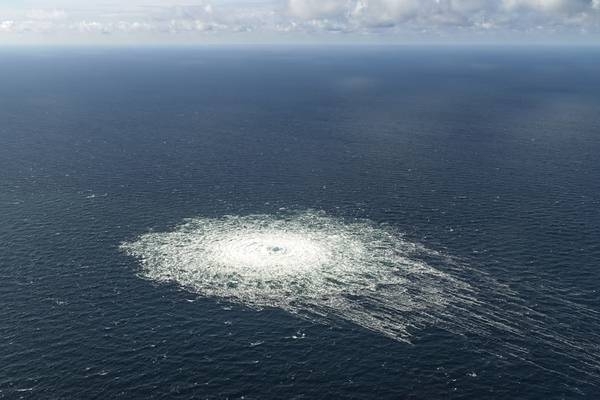Bakhmut: a ghost town of high symbolic importance to Kremlin and Wagner mercenary group

Before Russia’s grinding advance across eastern Ukraine brought Bakhmut to the world’s attention and turned it into a ghost town of shell-blasted ruins, it was known for its sparkling wine, salt and gypsum, and was home to more than 70,000 people. Mining for alabaster and other forms of gypsum in the 19th century created tunnels and caverns that were perfect for storing wine, and from the 1950s grapes from Crimea and other southern reaches of the Kremlin’s empire were transformed into “Sovyetskoye Shampanskoye” (Soviet Champagne) in Bakhmut, or Artyomovsk as the Russians call it. The strategic value of Bakhmut for Russia’s invasion force is more prosaic: it is the local hub of a road network linking Moscow-controlled towns to the east and north with Kyiv-held towns to the west, so while it remains in Kyiv’s hands the Kremlin has no hope of fully occupying the Donetsk region that it now regards as its own sovereign territory. Even if Russia can take what remains of Bakhmut after six months of intense fighting, it will face fierce resistance when trying to push farther west, into an area where Ukraine has made significant defensive preparations and will fight hard for the slightly smaller towns of Druzhvivka and Kostyantynyvka, and the larger cities of Slovyansk and Kramatorsk. Analysts say Bakhmut, with its moderate importance for supply lines, has gained a disproportionate symbolic significance in Russia for several reasons. Moscow’s forces have not taken a Ukrainian city since last summer, when they seized Severodonetsk and Lysychansk in Luhansk region, and the capture of villages and the town of Soledar near Bakhmut have not compensated for Russia’s loss of much of Kharkiv region last September and the provincial capital of Kherson in November. So the Kremlin needs Bakhmut to show that its “special military operation” still has some momentum. At the same time, victory there is vital to an increasingly prominent figure who owes his power to the Kremlin but is now often at odds with the Russian military. [ Race to get last children out of Bakhmut as city becomes ‘hell on earth’ ] Yevgeny Prigozhin is a Russian ex-convict turned catering boss whose lucrative contracts to provide food for the Kremlin and other arms of the state gained him the nickname “Putin’s chef”. His apparent closeness to the Russian president allowed him to establish the Wagner mercenary group, which provides muscle in support of Moscow’s interests in Ukraine, Syria, Libya and other parts of Africa. Wagner has recruited tens of thousands of prisoners in Russia on the promise of a pardon if they survive the war in Ukraine, and Kyiv’s forces say they are being sent forward in “human waves” around Bakhmut and dying in huge numbers. When Russia’s defence ministry announced the capture of Soledar in January, Prigozhin complained that his fighters were not given credit by officials who “constantly try to steal victory” from the Wagner group. He has repeatedly accused the defence ministry in Moscow of “starving” Wagner of ammunition as it tries to storm Bakhmut, and on Monday he said his representative had been barred from the headquarters of the Russian military command in Ukraine. January 2023: Eyewitness video shows the damage caused to buildings by strikes across the frontline city of Bakhmut, in the Donetsk region of Ukraine. Video: Reuters This came a day after he warned that the defeat of Wagner around Bakhmut would have devastating consequences for Russia’s war effort. “If Wagner rolls back now, then ... the front will collapse all the way to the Russian borders and perhaps further,” Prigozhin said. “Wagner is the cement ... that stabilises [the Russian line] and prevents the enemy from breaking through. If we withdraw, we will go down in history as the people who played the main role in losing the war,” he added. US officials suspect Prigozhin wants the salt and gypsum deposits around Bakhmut, noting how Wagner seeks to make money from raw materials in areas where it operates in the Middle East and Africa. [ Russia’s Wagner Group: the tale of a warlord and his lawyers ] Prigozhin said in January that “the cherry on the cake is the system of Soledar and Bakhmut mines, which is actually a network of underground cities. It not only [can hold] a big group of people at a depth of 80m-100m, but tanks and infantry fighting vehicles can also move about.” Experts see little military potential in the mines, however, given that Ukrainian forces know their access points and could target troops and vehicles entering or exiting. An eventual Ukrainian withdrawal from the ruins of “fortress” Bakhmut seems inevitable. But if Kyiv’s forces can mount an organised retreat to the next line of defence, then they will have slowed Russia’s advance, inflicted heavy casualties on the enemy and bought time for the arrival of more weapons and ammunition from the West, all while fuelling discord between Prigozhin’s private army and Moscow. Ukraine has also suffered severe losses at Bakhmut, however, and must hope these losses do not undermine a spring offensive with which Kyiv hopes to regain the battlefield initiative over Russia in the coming months.
Officials believe pro-Ukraine group may have sabotaged Nord Stream, say reports
Germany embraces feminist foreign and development policy
:quality(70)/cloudfront-eu-central-1.images.arcpublishing.com/irishtimes/KEGOKTQNXJ7QPZYIJFJJGYUL2U.jpg)
Ukraine vows to strengthen Bakhmut’s defence and find killers of ‘executed’ soldier
:quality(70)/cloudfront-eu-central-1.images.arcpublishing.com/irishtimes/BGPXJ6LO5PBNXV77OXN45EBFAQ.jpg)
Ukraine war: China accuses US of undermining peace efforts, prolonging conflict
:quality(70)/cloudfront-eu-central-1.images.arcpublishing.com/irishtimes/OSPFE3NYYNIVKRBIDPPJWKUELY.jpg)

It’s the first anniversary of the war in Ukraine. Will there be a second?
:quality(70)/cloudfront-eu-central-1.images.arcpublishing.com/irishtimes/L4UJQ3LMFJAF4GKEC3NZDE56NM.jpg)



